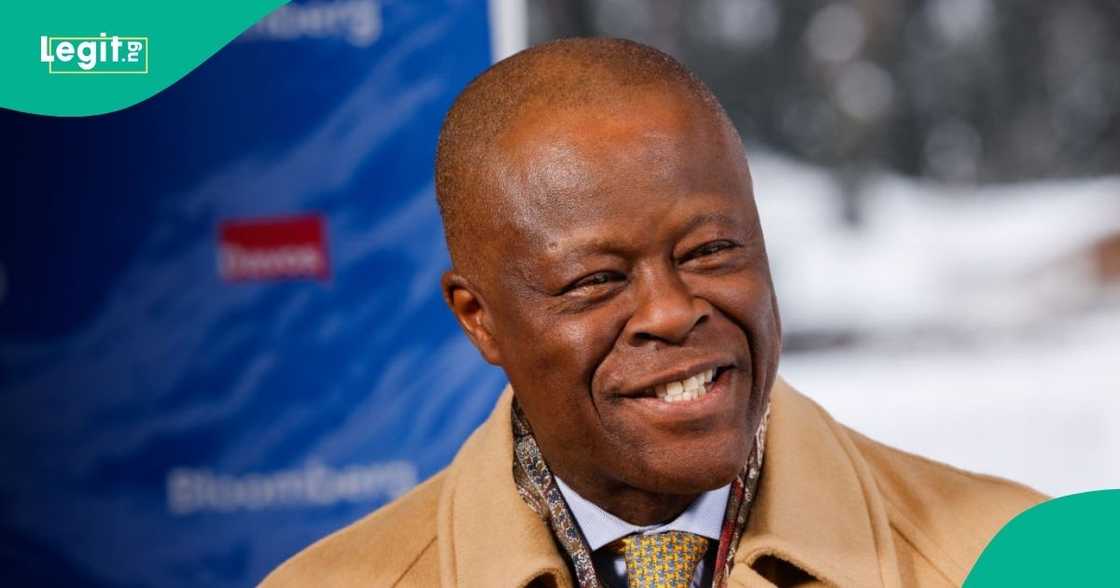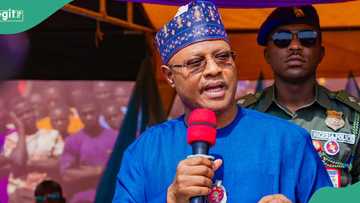Civil Society to Edun, Ogunjimi: Release 2025 Capital Budget Now, Pay Indigenous Contractors
A coalition of civil society organisations (CSOs) has urged the Minister of Finance and Coordinating Minister of the Economy, Wale Edun, and the Accountant General of the Federation, Shamsedeen Babatunde Ogunjimi, to immediately begin disbursement of funds under the 2025 capital budget.
The Coalition for Equity in Public Contracts (CEPC), led by Convener Dr. Salisu Garba, warned that government credibility is at stake if commitments made to indigenous contractors are not fulfilled without delay.

Source: Getty Images
“Nigerians are tired of promises,” Garba said in a statement on Friday. “This is the moment for the Finance Minister and the Accountant General to prove they are serious by beginning immediate disbursements under the 2025 capital budget.”
Resolution welcomed, but action needed
The group welcomed the resolution recently brokered by Deputy Speaker of the House of Representatives, Benjamin Kalu, between the Finance Ministry and the Office of the Accountant General over delayed contractor payments. However, it stressed that agreements mean little without visible compliance.
“For months, contractors have executed projects in good faith, many financing work with bank loans. Yet they remain stranded while government agencies trade blame,” CEPC stated.
The coalition argued that indigenous contractors are central to infrastructure delivery, job creation, and grassroots development. Failure to pay them promptly, it warned, undermines both fiscal discipline and economic stability.
Delayed payments threaten jobs and projects
According to the CSOs, every unpaid road, abandoned school block, or unfinished hospital wing represents livelihoods lost and communities denied essential services.
“Indigenous contractors are the backbone of local development,” Garba said. “Frustrating them undermines fiscal federalism itself. The capital budget is not a token—it is the lifeblood of Nigeria’s development.”
They cautioned that the selective application of budgetary provisions while diverting funds to off-budget spending was a sign of executive indiscipline.
National Assembly’s oversight on the line
The coalition further reminded lawmakers of their constitutional oversight duty, warning that Nigerians will hold them accountable if the agreements collapse.
“This issue has gone beyond contractors to the credibility of parliament itself,” Garba said. “Having intervened, the National Assembly must now ensure full compliance. Anything less will be seen as complicity.”
Ripple effects on the economy
The statement also highlighted the wider economic risks of delayed capital budget releases. Contractors struggling to repay loans, it noted, face reduced access to credit as banks tighten lending, creating a ripple effect that could contract the economy.
“This is how a vicious cycle begins: government delays payments, contractors default on loans, banks cut lending, and the economy slows down,” the group warned.
Call for presidential intervention
The coalition urged President Bola Tinubu to step in, saying his repeated promises of reform and fiscal discipline will be tested by how quickly the finance ministry releases funds.
“A government that cannot honour its contracts cannot expect trust from citizens or investors,” Garba said.
“The President must ensure that Edun and Ogunjimi act swiftly. Nigerians are watching closely.”
Credibility at stake
As the 2025 fiscal year progresses, CSOs, contractors, and ordinary Nigerians insist that the credibility of both the executive and legislature hangs on the timely implementation of the capital budget.

Source: Getty Images
For them, the question is simple: will government promises finally translate into action—or remain empty rhetoric?
FG Removes Subsidy on CNG, prices jump
Legit.ng earlier reported that the federal government has removed the subsidy on Compressed Natural Gas (CNG), sparking a surge in prices across the country.
Retailers confirmed that the cost of one standard cubic metre (SCM) of CNG has climbed from around N220–N230 to as high as N420–N450, depending on the vehicle type and station.
Truck operators are now paying N450 per SCM, while commercial and private car drivers continue to enjoy partial subsidies at N380 per SCM
Source: Legit.ng





